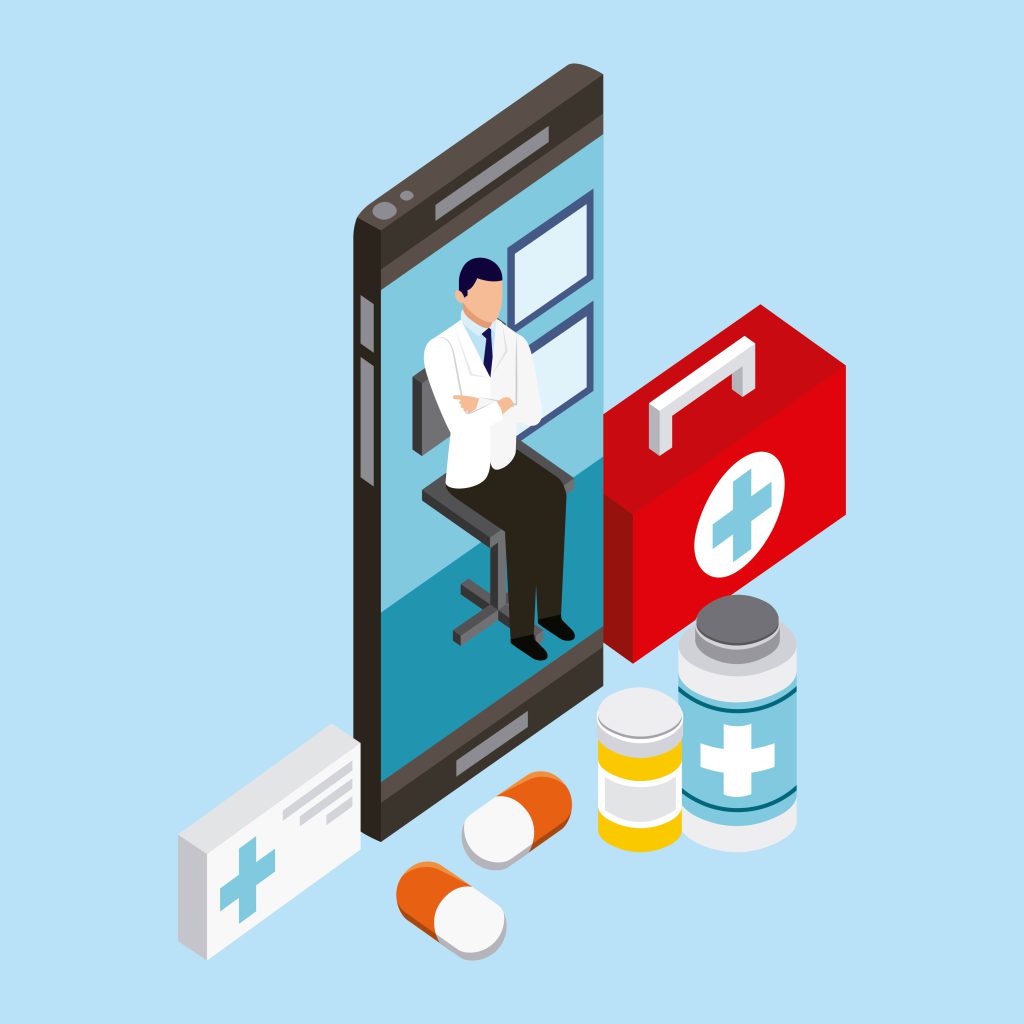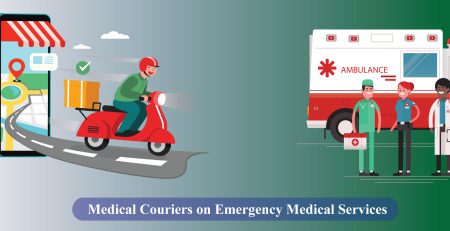Navigating the Challenges of Medical Courier Services in the Modern Healthcare Landscape
Arrived EZ2024-01-19T18:06:39+00:00In the ever-evolving landscape of modern healthcare, the role of medical courier services has become increasingly crucial. These services play a pivotal role in ensuring the seamless transportation of medical specimens, samples, and equipment between healthcare facilities, laboratories, and clinics. However, like any other industry, medical courier services face their own set of challenges. In this blog, we will explore the key hurdles faced by medical courier services in today’s healthcare environment and discuss strategies to navigate them effectively.
Stringent Regulatory Compliance:
The points you’ve mentioned highlight a critical challenge faced by medical courier services, which is the need to comply with stringent regulatory standards governing the transportation of medical goods. This challenge is multifaceted and involves navigating through complex compliance requirements, particularly those outlined by regulations such as the Health Insurance Portability and Accountability Act (HIPAA) and other regional guidelines.
Understanding the Regulatory Landscape:
HIPAA Regulations: HIPAA is a crucial set of regulations in the United States designed to safeguard the privacy and security of patient information. Medical courier services must adhere to HIPAA standards to ensure the confidentiality of medical records during transportation.
Regional Guidelines: Apart from federal regulations like HIPAA, there may be additional regional or state-specific guidelines that must be followed. These can vary, adding another layer of complexity to compliance efforts.
Investing in Ongoing Staff Training Programs:
To address the challenges posed by complex regulations, medical courier services can invest in ongoing staff training programs. This ensures that employees are well-informed about the latest compliance requirements and are equipped with the knowledge to handle medical shipments appropriately.
Training programs can cover topics such as the proper handling of medical specimens, maintaining the integrity and confidentiality of medical records, and understanding the specific regulations that apply to the transportation of medical goods.

Implementing robust tracking systems:
A key strategy to ensure compliance is the implementation of robust tracking systems. These systems should cover every stage of the transportation process, from the point of pick-up to the final delivery.
Tracking systems help monitor and record the movement of medical goods, providing a transparent and traceable trail. This level of visibility is crucial for demonstrating compliance and can be valuable in cases of audits or investigations.
Ensuring Compliance at Every Stage:
The emphasis on compliance at every stage of the transportation process is essential. This includes proper packaging, secure transportation, and timely delivery. Each step must align with the regulatory standards to prevent any breaches that could compromise patient confidentiality or violate legal requirements.
In summary, overcoming the challenge of adhering to stringent regulatory standards in medical courier services requires a comprehensive approach. This involves continuous staff training to stay informed about evolving regulations and the implementation of tracking systems to ensure compliance at every stage of the transportation process.
Time-Sensitive Deliveries:
The transportation of medical specimens and samples is a crucial aspect of healthcare logistics, and timely deliveries are paramount to preserving the integrity of these materials. Here’s a detailed breakdown of the key considerations involved:
Critical Timelines for Processing, Diagnosis, and Treatment:
Medical specimens, such as blood samples or tissue cultures, often have time-sensitive requirements. Prompt processing is essential for accurate diagnosis, and timely treatment decisions may hinge on the results. Delays in transportation can compromise the quality and viability of the specimens.
Efficient Route Planning:
Efficient route planning is a fundamental aspect of ensuring timely deliveries. Medical courier services must optimize their routes to minimize transit times, taking into account factors such as distance, traffic patterns, and the urgency of different medical samples.
Utilizing advanced route optimization software helps in planning the most efficient and direct routes, reducing the likelihood of delays.
Real-time Tracking Technologies:
Real-time tracking technologies play a crucial role in maintaining visibility and control over the transportation process. By using GPS tracking and other monitoring tools, medical courier services can track the location and status of shipments in real-time.
This allows for proactive management, enabling the identification of potential delays and the implementation of corrective measures before they impact the critical timelines for specimen processing.
Contingency Measures for Unforeseen Delays:
Despite careful planning, unforeseen delays may occur due to factors like traffic, adverse weather conditions, or unexpected road closures. Medical courier services need to have robust contingency measures in place to address such situations.
Contingency plans may involve alternative transportation options, rerouting strategies, or clear protocols for handling unexpected events to ensure that specimens reach their destination within the required timeframe.
Effective Communication with Healthcare Providers:
Open and effective communication between the medical courier service and healthcare providers is essential. Establishing clear channels of communication ensures that healthcare providers are informed about the status of shipments and any potential delays.
Timely updates enable healthcare providers to adjust their workflows, prioritize certain samples, or make alternative arrangements based on the expected arrival times of critical specimens.
Setting Clear Expectations:
Setting clear expectations regarding delivery times is crucial for managing the transportation of medical specimens. This involves establishing realistic timelines and communicating them to healthcare providers.
Clear communication helps build trust and ensures that all parties involved understand the urgency and importance of different shipments, allowing for better coordination and collaboration.
In summary, medical courier services must focus on efficient route planning, real-time tracking technologies, and contingency measures to ensure the timely and secure delivery of medical specimens. Effective communication with healthcare providers, along with setting clear expectations, is vital to managing the challenge of meeting critical timelines for processing, diagnosis, and treatment.
Temperature Control and Special Handling:
Handling medical shipments that are particularly sensitive to temperature variations, such as organ transplants or temperature-sensitive medications, requires specialized measures to ensure their viability upon arrival. Here’s an elaboration on the key considerations:
Nature of Temperature-Sensitive Shipments:
Certain medical shipments are highly sensitive to temperature fluctuations. For example, organs intended for transplantation or medications that require specific temperature conditions to maintain their efficacy must be handled with precision throughout the transportation process.
Specialized Handling Requirements:
Temperature-sensitive shipments often come with specific handling requirements. Medical courier services need to be aware of and comply with these requirements to ensure the integrity of the items being transported. This may include adherence to strict temperature ranges and environmental conditions.
Investing in Temperature-Controlled Vehicles:
Utilizing state-of-the-art temperature-controlled vehicles is crucial for maintaining the required conditions during transit. These vehicles are equipped with advanced cooling or heating systems to regulate the temperature within the cargo area, providing a stable environment for temperature-sensitive shipments.
Investing in such vehicles demonstrates a commitment to the safe transportation of medical goods and helps prevent temperature-related damage.

Advanced Packaging Solutions:
Specialized packaging solutions are essential for insulating medical shipments from external temperature influences. This may involve using insulated containers, thermal packaging, or phase-change materials that help maintain the required temperature for an extended period.
The packaging should be designed to provide a barrier against external temperature fluctuations, ensuring that the internal environment remains within the specified range.
Continuous Monitoring Systems:
Continuous monitoring of temperature conditions is critical for identifying and addressing any deviations during transit. Advanced monitoring systems, equipped with sensors, provide real-time data on the temperature inside the cargo area.
In the event of a temperature excursion, these systems can trigger alerts, allowing the courier service to take immediate corrective actions, such as adjusting the vehicle’s settings or rerouting to a facility with suitable storage conditions.
Risk Mitigation Strategies:
Developing comprehensive risk mitigation strategies is essential for handling temperature-sensitive medical shipments. This involves having contingency plans in place for various scenarios, such as equipment malfunctions, unexpected delays, or adverse weather conditions.
By identifying potential risks and establishing protocols to address them, medical courier services can minimize the likelihood of temperature-related issues impacting the viability of the shipped items.
Compliance with Regulatory Standards:
Temperature-sensitive medical shipments often fall under stringent regulatory standards. Medical courier services must ensure compliance with these standards, which may include guidelines for temperature monitoring, documentation, and reporting.
Adhering to regulatory requirements not only ensures the safety and efficacy of the transported items but also helps maintain the reputation and trust of the courier service in the healthcare industry.
In summary, successfully handling temperature-sensitive medical shipments requires a combination of specialized vehicles, advanced packaging solutions, continuous monitoring systems, and robust risk mitigation strategies. By investing in these elements, medical courier services can mitigate the risks associated with temperature-sensitive deliveries and uphold the integrity of critical medical goods, such as organs for transplantation or temperature-sensitive medications.
Data Security and Confidentiality:
The security and confidentiality of medical information during transit are critical aspects that medical courier services must prioritize to meet regulatory standards and maintain the trust of healthcare providers and patients. Here’s an elaboration on the key considerations:
Sensitive Nature of Medical Information:
Medical information often contains sensitive and private details about patients, including their health conditions, treatment plans, and personal identifiers. Protecting this information is crucial to comply with healthcare privacy regulations and to ensure patient trust.
Robust Data Encryption Protocols:
Implementing robust data encryption protocols is essential to safeguard medical information during transit. Encryption ensures that the data is converted into a secure, unreadable format during transportation, making it significantly more challenging for unauthorized parties to access or interpret the information.
Secure communication channels, using technologies such as Transport Layer Security (TLS) or other encryption mechanisms, are vital for protecting data as it travels between the healthcare facility and the medical courier service.
Secure Storage Facilities:
In addition to securing data during transit, medical courier services must also ensure the security of information when it is stored at their facilities. Secure storage facilities with access controls, surveillance systems, and intrusion detection mechanisms help prevent unauthorized access to stored medical data.
Implementing physical security measures, such as restricted access areas and surveillance cameras, adds an additional layer of protection to prevent unauthorized personnel from gaining physical access to sensitive information.
Strict Access Controls:
Enforcing strict access controls is critical for limiting access to medical information only to authorized personnel. Role-based access controls (RBAC) can be implemented to ensure that individuals have the appropriate permissions based on their job responsibilities.
This includes not only digital access controls but also physical access controls to prevent unauthorized individuals from entering areas where sensitive medical information is stored or processed.
Regular Security Audits:
Conducting regular security audits is an essential practice for identifying and addressing potential vulnerabilities in the system. Security audits involve a systematic review of security measures, including data encryption, access controls, and overall information security policies.
Regular audits help ensure that security measures are up-to-date and effective in protecting against evolving threats. Any identified vulnerabilities can be addressed promptly to maintain a high level of data security.
Compliance Assessments:
Healthcare regulations, such as the Health Insurance Portability and Accountability Act (HIPAA) in the United States, mandate specific security and privacy standards for medical information. Conducting compliance assessments ensures that the medical courier service is meeting these regulatory requirements.
Compliance assessments involve evaluating policies, procedures, and technical measures to ensure alignment with industry standards. This not only helps in meeting regulatory obligations but also demonstrates a commitment to maintaining the highest standards of data security and privacy.
In summary, ensuring the security and confidentiality of medical information during transit requires a multi-faceted approach. This includes implementing robust data encryption protocols, securing storage facilities, enforcing strict access controls, conducting regular security audits, and performing compliance assessments. By adopting these measures, medical courier services can create a secure environment for transporting and handling sensitive medical data, fostering trust among healthcare providers and patients.
Emerging Technologies:
The healthcare industry is undergoing significant technological advancements, and for medical courier services, keeping pace with these innovations is crucial. Embracing cutting-edge technologies can enhance efficiency, accuracy, and overall service quality. Here’s an elaboration on the key technologies that can be beneficial for medical courier services:
Artificial Intelligence (AI):
Optimized Routing: AI algorithms can be employed for route optimization, helping medical courier services plan the most efficient delivery routes. AI can analyze historical data, traffic patterns, and other variables to suggest optimal routes, reducing transit times and improving overall efficiency.
Predictive Analytics: AI-driven predictive analytics can anticipate demand patterns, enabling better resource allocation. This is particularly useful for medical courier services in managing fluctuating volumes of medical shipments.
Internet of Things (IoT)-Enabled Tracking Devices:
Real-Time Monitoring: IoT-enabled tracking devices provide real-time monitoring of shipments. These devices can offer precise location tracking, temperature monitoring, and other relevant data. For temperature-sensitive medical shipments, IoT devices can play a crucial role in ensuring that the specified conditions are maintained throughout transit.
Condition Monitoring: IoT devices can monitor various conditions, such as humidity levels or shock impacts, providing insights into the environmental conditions experienced by medical shipments. This data can be invaluable for ensuring the integrity of sensitive materials.
Route Optimization Algorithms:
Efficient Delivery Routes: Advanced route optimization algorithms take into account various factors, including traffic conditions, delivery priorities, and time constraints. By leveraging these algorithms, medical courier services can streamline their operations, reduce fuel consumption, and enhance overall efficiency.
Dynamic Adjustments: Route optimization algorithms can dynamically adjust routes in response to real-time events or changes in delivery priorities. This adaptability is crucial for responding to unforeseen circumstances and ensuring that critical medical shipments are prioritized.
Advanced Tracking and Visibility Systems:
Enhanced Visibility: Implementing advanced tracking systems provides enhanced visibility into the entire transportation process. This visibility is not only beneficial for the courier service but also reassures healthcare providers about the status and location of their medical shipments.
Customer Communication: Tracking systems enable real-time updates to be communicated to healthcare providers, improving communication and allowing for better coordination in cases of unexpected delays or changes in delivery schedules.
Integration with Electronic Health Records (EHR):
Seamless Information Exchange: Integrating with electronic health records allows for seamless information exchange between healthcare providers and the courier service. This integration ensures that all relevant information about medical shipments is readily accessible, reducing the risk of errors and improving overall service quality.
Regular Technology Assessments and Adoption:
Continuous Improvement: The rapid pace of technological evolution necessitates regular assessments of emerging technologies. By staying informed about the latest advancements, medical courier services can identify opportunities for improvement and adopt technologies that align with their operational goals.
Competitive Edge: Regularly adopting new technologies gives medical courier services a competitive edge. It allows them to differentiate themselves by offering enhanced services, improved efficiency, and a higher level of reliability.
In summary, embracing technologies like artificial intelligence, IoT-enabled tracking devices, and route optimization algorithms can significantly enhance the efficiency and quality of medical courier services. Regular assessments and the adoption of new technologies not only streamline operations but also contribute to staying
Capacity and Scalability:
Addressing the increasing demands in the healthcare industry requires medical courier services to have scalable operations that can adapt and expand to meet growing requirements. Here’s an elaboration on key aspects of scaling operations for medical courier services:
Optimizing Vehicle Fleets:
As demand increases, optimizing vehicle fleets becomes crucial for efficient operations. This may involve upgrading the fleet with vehicles that have larger capacities, better fuel efficiency, or specialized features for temperature-sensitive shipments.
Implementing route optimization algorithms, as mentioned earlier, can also contribute to optimizing vehicle fleets by ensuring that deliveries are made in the most efficient and timely manner.
Hiring and Training Additional Staff:
Scaling operations often necessitates hiring additional staff to handle increased workloads. This includes recruiting drivers, logistics coordinators, and administrative personnel.
Training programs become essential to ensure that new staff members are well-acquainted with the company’s processes, compliance requirements, and any specialized skills required for handling specific medical shipments.
Expanding Service Areas:
Growing healthcare demands may require medical courier services to expand their service areas. This expansion could involve reaching new geographical regions, serving additional healthcare facilities, or extending delivery coverage to more remote locations.
Expanding service areas should be accompanied by a careful assessment of logistical challenges, regulatory requirements in new regions, and the development of strategic partnerships or collaborations with local healthcare providers.
Investing in Technology for Scalability:
Leveraging technology is crucial for scalable operations. Implementing scalable solutions, such as cloud-based systems and scalable software applications, ensures that the technological infrastructure can accommodate increased transaction volumes and data processing requirements.
Scalable technology solutions enable medical courier services to handle more shipments, manage larger fleets, and process higher volumes of data without experiencing performance bottlenecks.
Flexible Workforce Management:
A scalable medical courier service should be able to adapt its workforce according to demand fluctuations. This may involve having a flexible workforce management strategy, including the ability to hire temporary staff during peak periods or engage part-time employees based on workload requirements.
Supply Chain Collaboration:
Collaborating with other entities in the healthcare supply chain, such as suppliers, laboratories, and healthcare providers, can contribute to scalability. Building strong partnerships allows for more streamlined coordination and a collaborative approach to meeting increasing demand.
Compliance Management at Scale:
As operations scale, ensuring compliance with regulatory standards becomes even more critical. Medical courier services must have robust compliance management systems in place, including regular audits and assessments to verify adherence to industry regulations.
Customer Relationship Management:
Scalability should not come at the expense of customer service. A scalable medical courier service must prioritize customer relationship management to ensure that the quality of service, communication, and responsiveness to customer needs are maintained, even as the volume of operations increases.
In summary, scaling operations for medical courier services involves optimizing vehicle fleets, hiring and training additional staff, expanding service areas, investing in scalable technology, and adopting flexible workforce management strategies.
In the dynamic landscape of medical courier services, successfully navigating these challenges requires a combination of technological innovation, strict adherence to regulations, and a commitment to continuous improvement. By addressing these hurdles head-on, medical courier services can not only overcome current challenges but also position themselves as reliable partners in the healthcare ecosystem, contributing to improved patient outcomes and overall healthcare efficiency.












Leave a Reply